Faculty News
New Faces at SEAS
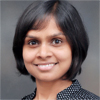
Assistant Professor, Industrial Engineering and Operations Research Postdoc Research Fellow, Microsoft Research India, 2011–2013; PhD, Stanford University, 2011; ME, Indian Institute of Science, India, 2004; BE, M.B.M. Engineering College, India, 2002
Shipra Agrawal specializes in several areas of optimization and learning including data-driven optimization under partial, uncertain, or online inputs and related topics. She also works with prediction markets and game theory and will also be a part of Columbia’s Data Science Institute. A former researcher at Microsoft, IBM, Bell Labs, and Yahoo, Agrawal will teach Deterministic Models and a PhD course on Sequential Decision Making in the spring.

Associate Professor, Computer Science
PhD, MIT, 2009; MEng, 2005; BS, 2004
Alexandr Andoni explores the algorithmic foundations of massive data. As a theoretical computer scientist, he uses and develops tools from areas such as sublinear algorithms, high-dimensional computational geometry, metric embeddings, and machine learning. He plans to teach a class on Algorithmic Techniques for Massive Data, and, more generally, theoretical computer science classes, in particular on all things algorithmic.
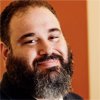
Lecturer in Discipline, Computer Science
PhD, Columbia University, 2008;
MPhil, 2004; MS, 2002; BA, 2000
Paul S. Blaer is director of Computing Research Facilities in the Department of Computer Science and has previously taught undergraduate courses. His primary research interests are in mobile robotics, computer science education, 3D vision, and mobile computing, particularly view planning and automated data acquisition for 3D modeling of complex sites. This year, he will teach Introduction to Computer Science and Data Structures.

Associate Professor, Industrial
Engineering and Operations Research
PhD, University of Amsterdam, 2006;
MS, Vrije Universiteit Amsterdam, 2002
Antonius “Ton” Dieker’s research focuses on computer simulation techniques and design of service systems. His honors include the Goldstine Fellowship from IBM Research, an NSF CAREER Award, and the Erlang Prize from the Applied Probability Society of INFORMS. He joins Columbia from Georgia Tech, after spending a year at SEAS as a visiting professor. He also serves on the editorial boards of Operations Research and Mathematics of Operations Research journals. Dieker taught a PhD-level course on sampling methods and is teaching probability and statistics this fall.

Assistant Professor, Industrial Engineering and Operations Research
Postdoc Researcher, IBM T.J. Watson Research Center, 2014–2015;
PhD, MIT, 2014; BS, Cornell University, 2009
Adam Elmachtoub concentrates in supply chain and revenue management, drug development, and sports analytics. Elmachtoub is a part of Columbia’s Data Science Institute and teaches business analytics and operations management.

David M. Rickey Professor of Applied Physics and of Materials Science PhD,
University of Rochester, 1991; MS, 1985; BS, 1983
Alexander Gaeta’s research focuses on nanophotonics, ultrafast nonlinear optics, nonlinear propagation in fibers and bulk media, non-classical light fields, and stimulated scattering processes. A fellow of the Optical Society of America and of the American Physical Society, Gaeta was most recently at Cornell University, where he was the Samuel B. Eckert Professor of Engineering. He plans to teach courses in the applied physics curriculum.

Assistant Professor, Electrical Engineering PhD,
University of California at Berkeley, 2010; MS, 2007; BS, 2004
Fred Jiang’s expertise includes cyber physical systems and data analytics, smart and sustainable buildings, mobile and wearable systems for health and fitness, and environmental monitoring and control. A former senior researcher at Intel Labs China, he also will serve as a faculty member of Columbia’s Data Science Institute. Jiang plans to teach both undergraduate and graduate courses in electrical engineering and computer engineering this year.
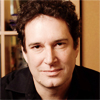
Professor, Mechanical Engineering PhD,
Technion, Israel, 1998; BS, 1989
Hod Lipson works in the general fields of robotics and additive manufacturing. He has pioneered methods for robots to self-replicate as well as to self-model and reprogram themselves in the context of damage recovery or change in environment. Most recently at Cornell University, Lipson’s work on self-aware and self-replicating robots, food printing, and bio-printing has received widespread media coverage, including in The New York Times, The Wall Street Journal, and NPR. He is the coauthor of the recent book Fabricated: The New World of 3D Printing. In the spring, he plans to teach Digital Manufacturing.
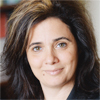
Eugene Higgins Professor of Electrical Engineering PhD,
Technion, Israel, 1998; MS, 1994; BS, 1992
Michal Lipson’s research focuses on the physics and applications of optical nanostructures with dimensions significantly smaller than the wavelength of light including silicon photonics, high-performance optoelectronic devices, optomechanics, and novel on-chip nanophotonic devices. Most recently, Lipson was a member of the faculty at Cornell University, where she was the Given Foundation Professor of Engineering. Her honors and awards include a MacArthur Fellow, Blavatnik Award, IBM Faculty Award, and NSF Early Career Award.
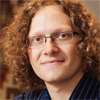
Chu Assistant Professor, Applied Mathematics PhD,
University of Minnesota, 2015; BS, McGill University, 2008
Vincent Quenneville-Bélair’s research interests are in numerical analysis and scientific computation with applications to physics and wave propagation. In particular, he currently studies gravitational waves through the design and analysis of new mixed finite elements using the Finite Element Exterior Calculus framework. He is teaching a graduate course in partial differential equations.

Lecturer in Discipline, Computer Science PhD,
University of Orléans, France, 2003; MS, 1999; Dipl. Ing.,
University of Sciences and Technology Houari Boumediene, Algeria, 1996
Ansaf Salleb-Aouissi’s research interests lie in machine learning and data science, including frequent patterns mining, rule learning, and action recommendation in addition to recent work in crowd sourcing, medical informatics, and educational data mining. She was previously an associate research scientist at Columbia’s Center for Computational Learning Systems and an adjunct professor with Computer Science and the Data Science Institute. Ansaf will be developing new data science courses in the Data Science Institute and teaching discrete mathematics in the Department of Computer Science.

Assistant Professor, Electrical Engineering Postdoc Researcher, MIT, 2015;
PhD, 2015; SM, 2010; BS, University of Texas at Austin, 2008
James T. Teherani’s research interests span the study of fundamental material properties to the optimization of real-world electronic devices, focusing on 2D semiconductors, graphene, and tunneling transistors. He is teaching both undergraduate and graduate courses in electrical engineering, including Semiconductor Electronic Devices.

Assistant Professor, Computer Science PhD, MIT, 2014; MS, 2010;
BS, University of California at Berkeley, 2004
Eugene Wu investigates technologies that help users play with their data, integrating techniques from specialties including core database optimization, data provenance, and visualization to improve the interface between users and data. He is teaching Data Science and Introduction to Databases and plans to also teach graduate topics at the intersection of databases, visualization, and interaction.
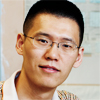
Assistant Professor, Applied Physics and Applied Mathematics Postdoc Associate, MIT, 2012–2015;
PhD, Stanford University, 2012; MS, 2010; BS, Peking University, China, 2007
Yuan Yang’s research interests include electrochemical materials and devices, thermal energy harvesting, and improving thermal management. In his postdoctoral research at MIT, he focused on thermal management and waste heat recovery.
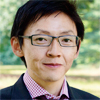
Assistant Professor, Earth and Environmental Engineering PhD,
Yale University, 2014; MS and MPh, 2011;
BEng, Nanyang Technological University, Singapore, 2004
Ngai Yin Yip pursues research in cutting-edge technologies for the sustainable production of water and energy, focusing on pioneering membrane-based processes for desalination, wastewater reclamation, salinity-gradient energy, and waste-heat conversion. He received the CH2M Hill/AEESP Outstanding Doctoral Dissertation Award in 2014 for his thesis on osmotically-driven membrane processes and ion-exchange membrane processes. Yip is co-instructing A Better Planet by Design in the fall.
Promotion to Tenure
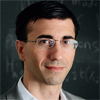
Applied Physics and Applied Mathematics
Using theoretical and computational methodologies, Associate Professor Chris Marianetti predicts various materials properties that have potential applications for energy storage or conversion, such as battery cathodes, nuclear reactor fuels, thermoelectrics, and hydrogen storage materials. Marianetti’s research group uses a broad range of theories and techniques, including classical molecular dynamics, density functional theory, and dynamical mean-field theory. He was awarded an NSF CAREER Award and DARPA Young Faculty Award. Marianetti joined Columbia Engineering in 2008 after serving as a postdoctoral researcher at Lawrence Livermore National Laboratory.
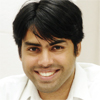
Mechanical Engineering
Associate Professor Arvind Narayanaswamy and his research group focus on theoretical and experimental investigations of nanoscale and microscale effects in thermo-fluid transport phenomena. Their goal is to use these fundamental studies to improve energy conversion and electronics cooling applications. Current projects include investigations of near-field enhancement of thermal radiative transfer, temperature variation of van der Waals and Casimir forces, far-field emission control using periodic structures, thermal metrology using bimaterial cantilevers, and resonance frequency characteristics of bimaterial cantilevers. Narayanaswamy is involved in the American Society of Mechanical Engineers and the American Physical Society.
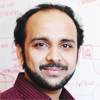
Computer Science
Associate Professor Simha Sethumadhavan is a leading researcher in hardware security and computer architecture. He directs the Computer Architecture and Security Technologies Lab (CASTL), and his group is focused on making computers better by improving their security with hardware enhancements and making them more energy-efficient through novel microarchitectures and program characterization techniques. He has been recognized with an Alfred P. Sloan Fellowship (2013), NSF CAREER Award (2011), and two IEEE Micro “top pick” awards (2004, 2013). He is a founder of a hardware security startup, Chip Scan, and serves on the Downloadable Security Technical Advisory Committee at the U.S. Federal Communications Commission.
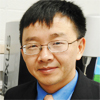
Civil Engineering and Engineering Mechanics
Associate Professor Huiming Yin specializes in the multiscale/physics characterization of civil engineering materials and structures with experimental, analytical, and numerical methods. His research interests are interdisciplinary and range from structures and materials to innovative construction technologies and test methods. Prior to joining Columbia Engineering in 2008, Yin was a civil engineer with the California Department of Transportation. He is a recipient of an NSF CAREER Award and a member of the American Society of Civil Engineers, The International Association for Computational Mechanics, and the U.S. Association for Computational Mechanics.
Promotion to Full Professor

Chemical Engineering
Scott Banta’s research focuses on applying protein engineering and metabolic engineering tools to solve challenging problems in bioengineering, with a focus on bioenergy. Banta and his research group are working to engineer new features in proteins and peptides including the engineering of protein/nanomaterial interfaces, enzymatic biomaterials, bioelectrochemistry, and stimulus-responsive proteins. The group is also interested in bioelectrochemical systems for bioenergy conversions including biofuel cells and electrofuel systems. He is the past chair of the Biochemical Technology (BIOT) division of the American Chemical Society.
Promotion to Associate Professor
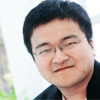
Computer Science
Xi Chen specializes in algorithmic game theory/economics and complexity theory. He examines algorithmic issues related to some of the most classic and fundamental models and solution concepts in game theory and economics. He earned both his BS in physics/mathematics and PhD in computer science from Tsinghua University, in 2003 and 2007, respectively. Before joining SEAS in 2011, he was a postdoctoral researcher at IAS, Princeton University, and USC. He received an NSF CAREER Award, a Sloan research fellowship, and a Presburger Award by the European Association for Theoretical Computer Science (EATCS).
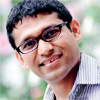
Industrial Engineering and Operations Research
Vineet Goyal is interested in the design of efficient and robust data-driven algorithms for large-scale dynamic optimization problems with applications in energy markets and revenue management problems. His research has been continually supported by grants from the National Science Foundation and industry. He received the NSF CAREER Award and the IBM Faculty Award in 2014 and a Google Faculty Research Award in 2013. Goyal received his PhD from Carnegie Mellon University in 2008 and spent two years as a postdoctoral associate at the Operations Research Center at MIT before coming to Columbia in 2010.
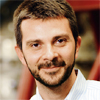
Applied Physics and Applied Mathematics
Francesco Volpe specializes in magnetically confined tokamak and stellarator plasmas, with emphasis on microwave heating and magnetohydrodynamic stabilization. Volpe joined Columbia Engineering in January 2012. From 2009 to 2011, he was an assistant professor of engineering physics at the University of Wisconsin–Madison. A recipient of a Department of Energy Early Career Award and of the Otto Hahn Medal (thesis prize of the Max Planck Society, Germany), Volpe did his postdoctoral research at General Atomics in San Diego, California; has authored or coauthored more than 50 journal articles; and is a member of various national and international committees.
